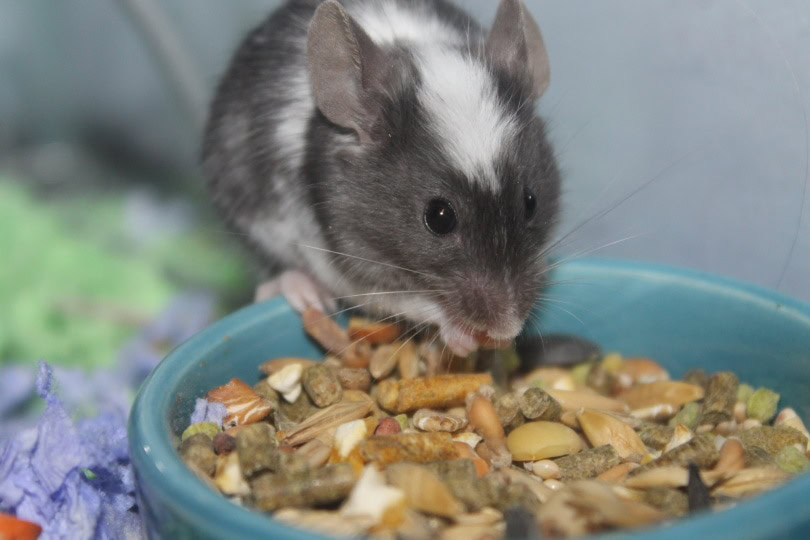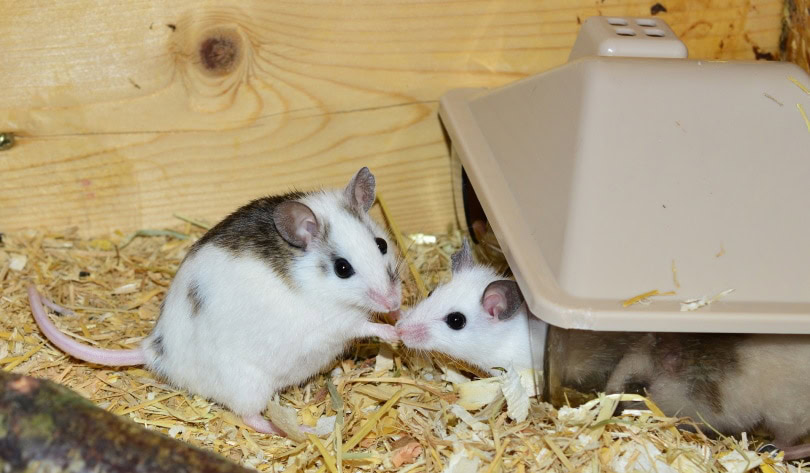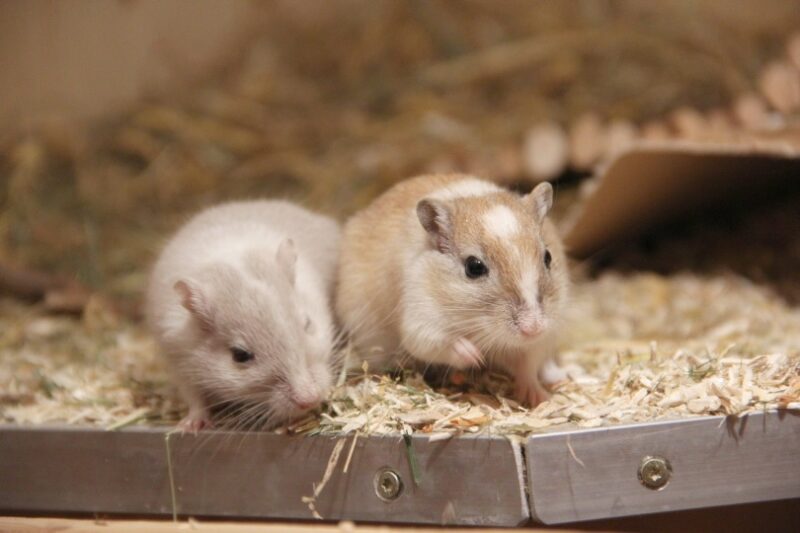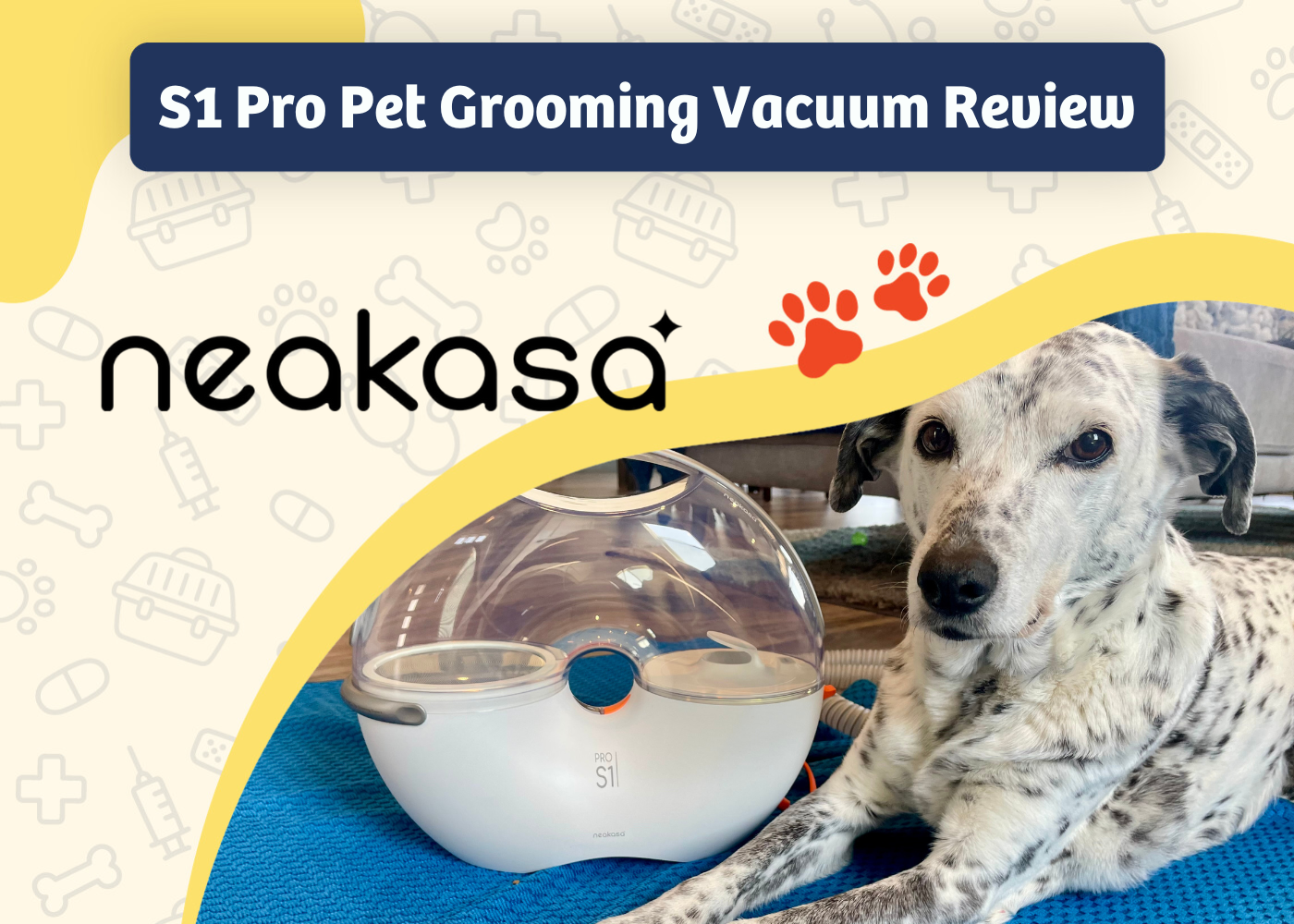VET APPROVED

The information is current and up-to-date in accordance with the latest veterinarian research.
Learn more »Click to Skip Ahead
As far as other pets go, mice aren’t complicated. Of course, they require the bare necessities like any animal. But unlike other common pets, domesticated mice have unique feeding and watering requirements. In the wild, mice can survive months without water but only up to 4 days without food. Crazy, right?
You can leave your mouse home for a weekend trip with adequate food and water generally with no problem. Any longer, and you’ll need to bring in some help.
Let’s look at what needs to be done before you leave.

Before You Leave: Things Your Mice Need
Preparing the enclosure before you leave is the best way to ensure your mouse will do well in your absence. This includes food, water, bedding, and entertainment while you’re away.
Food
Unlike other animals, mice don’t need to consume a full meal to meet their energy requirements. They have small stomachs and fast-acting digestive systems that require them to nibble constantly rather than eating large portions.
Because of this, mice need plenty of food to survive. They should not go for more than 2 days without food. How much food to leave your mice depends on the environment. In winter, mice require more calories to stay warm and fewer calories in the summer months.
Mice are omnivores and aren’t picky, so you can leave various food options for them to nibble. A high-quality feed mouse food will ensure your mice receive adequate nutrition. If possible, offer fresh produce and seeds as part of their daily allowance.

Water
Although food is more important than water for mice, you still have to leave your mice with fresh water. Domesticated mice don’t have as much freedom as they do in the wild. This means they can’t go as long without water as they normally would outside.
Mice also like to dig, so avoid using water dishes. Instead, offer water in a sippy water bottle to ensure the water stays clean and fresh.
Bedding and Cleaning
The bedding (substrate) is the foundation of your mice enclosure and serves multiple purposes:
- Collecting waste
- Providing material for nesting
- Providing material for digging
For these reasons, mouse enclosures need a cocktail of substrates to meet your critter’s needs. Paper is the most popular option for digging and nesting. Still, you can choose other litter like hay, straw, torn cardboard, hemp, and coconut coir.
Whichever you choose, the bedding needs to be loose, absorbent, and free of dust and artificial aromas. It should be switched to fresh bedding at least once per week. You’ll need to find someone to do it for you if you are away during this time.
Toys
Mice are curious critters that enjoy climbing, digging tunnels, and hiding in small spaces. Interactive toys will help keep their brains active to satisfy their natural rodent instincts.
Toys like exercise wheels, logs, bridges, and small animal hideouts are excellent options for entertaining your mice at any time, regardless of whether you’re traveling.
Mice also like to chew, so provide your mice with healthy items like Timothy hay, wooden toys, apple or aspen branches, or block chew toys to keep those chompers busy.


Mice Without Playmates
Mice are social creatures that shouldn’t be left alone generally. Female mice can be housed together. However, males can be aggressive around other males and should be housed separately.
If you don’t have another mouse in the enclosure, it’s wise to have someone visit your mouse for social interaction while you are away.
Prepare for Medical Emergencies
We don’t want to believe a medical emergency will arise in our absence, but it happens, so it’s wise to be prepared.
Locate the nearest animal emergency hospital that will treat rodents and leave the information with the person looking after your mice. Talk to the emergency hospital about leaving your credit card information on file if you can’t be reached to discuss treatment. Lastly, leave a carrier nearby for easy transportation to the hospital.

Summary
Leaving mice at home for a few days is relatively simple. As long as you provide everything your mice need, you can enjoy a short weekend trip without worrying.
Proper enclosure enrichment is vital for mice to thrive, regardless of whether you’re away. Take this time to improve the well-being of your mice before you leave- your mice will appreciate it!
Featured Image Credit: sonjafurter1, Pixabay










